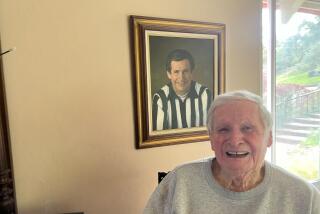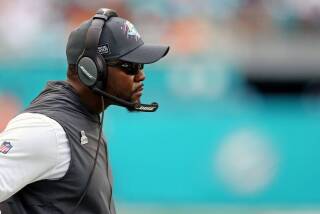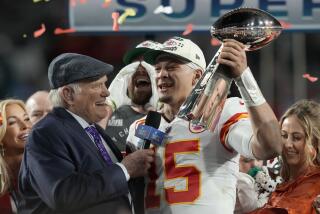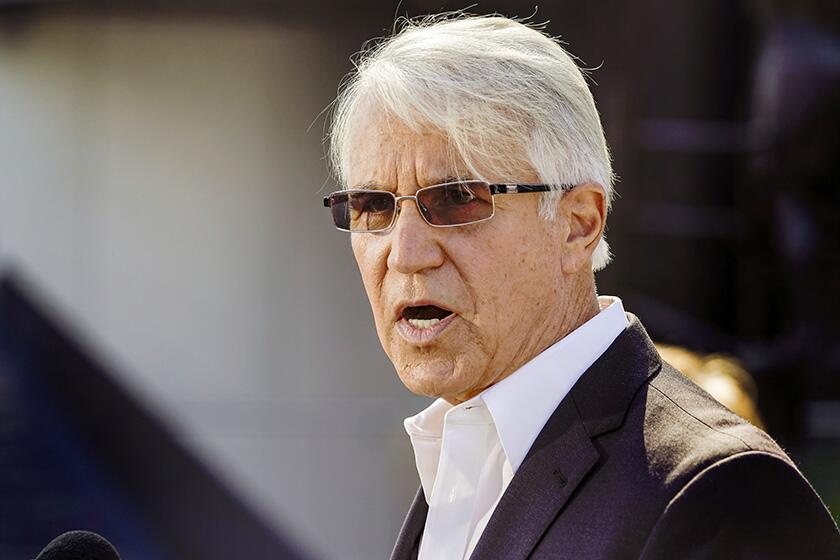A liberal’s hate-love affair with the NFL
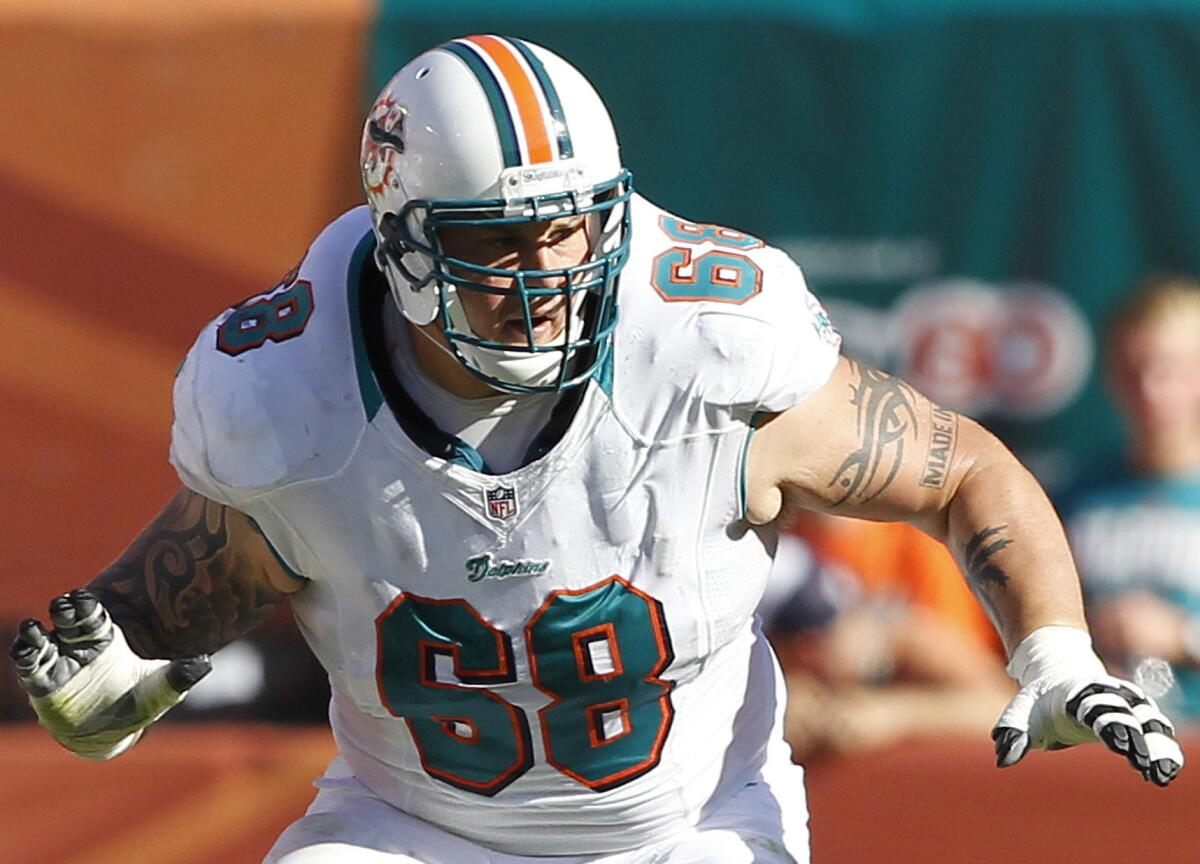
Having gorged myself, along with the rest of the country, on “Bullying in the NFL” pieces, I’ve been loath to pile on, figuring there was little to add to the conversation about Richie Incognito, the Miami Dolphins lineman who was suspended over his treatment of teammate Jonathan Martin.
But there’s a reason so many such pieces have been written and why this isn’t a topic that’s likely to go away soon. Unlike far more serious issues in the NFL this year — a star tight end arraigned on a murder charge, for example — there really isn’t a clear-cut answer here, despite what the “boys will be boys” apologists and moralizing scolds would have us believe.
The nucleus of the story lies somewhere between the battle-hardened insiders’ takes from the likes of Nate Jackson, a former NFL player who justified the hyper-aggressive culture of the NFL as the cost of doing business, writing in New York Magazine that “Richie Incognito acted like an animal because he lives in the jungle,” and the pearl-clutching from the likes of NFL reporter Adam Schefter, who’s been pushing the story from the beginning, and practically every other publication in the country, which have poked and prodded at Incognito and the bullying bogeymen from more angles than an ankle-twisting lineman at the bottom of a fumble scrum.
Jackson’s argument, one that a veritable Pro Bowl lineup of former and current players themselves have ascribed to — that you can take the man out of the gridiron but you can’t take the gridiron out of the man — is one that I’m sympathetic to, to an extent.
When your job description largely entails physically pushing other men around to get what you want, can we really be surprised when the boundaries of that attitude are blurred for the players themselves? (Especially when so many of them are walking around with perpetual concussions?) On the other hand, no one should have to suffer a miserably hostile work environment. Still, the idea of stripping the sport of its admittedly outdated and otherwise offensive stereotypical masculinity gives me pause. (And keep in mind, I’m not some militaristic right-wing brute. On nearly every other issue you can imagine, from gun rights to women’s issues to healthcare and on down the line, I consider myself a doggedly progressive-minded lefty.)
The spirit of the game, the violence, the sheer, stupid manliness of it all is a big part of what makes it appealing in the first place, even for those of us who’d just as soon avoid all of that in our real lives. Carrying the violence and aggression from the field into our everyday lives isn’t something I’d condone, but when it’s bracketed within the game — and as many players have been telling us, the locker room is an extension of the game — well, I guess I don’t see a problem with that.
Allegations that Incognito used racially offensive language are harder to swallow, but numerous players have come forward to say that the rules, even regarding that type of behavior, are often different in the locker room. It doesn’t make it right, but it’s worth considering.
Football players are often said to be our modern version of the ancient gladiators, bleeding and suffering for our entertainment. It troubles me that I don’t find anything wrong with that, particularly for the exceptionally well-compensated players in the NFL. Perhaps that’s because football serves as such a reliable pressure valve for so many millions of us — that it unburdens us of our own baser impulses. Just as a violent film serves as catharsis to people who have no interest in going out and engaging in a gun battle, the NFL provides us with an outlet to partition off aggression into manageable, entertainment-sized chunks.
Richie Incognito and others like him might be despicable human beings, but perhaps we need them to be just that to unburden us of our inclinations toward violence.
Martin was bullied so that the rest of us don’t have to be.
ALSO:The NFL’s bully boys
The NFL doesn’t have a monopoly on brutes
Jonathan Martin shows us how a real man acts
Luke O’Neil is a Boston-based writer and frequent contributor to the Boston Globe, Esquire and Slate. Follow him on Twitter @lukeoneil47
More to Read
A cure for the common opinion
Get thought-provoking perspectives with our weekly newsletter.
You may occasionally receive promotional content from the Los Angeles Times.
